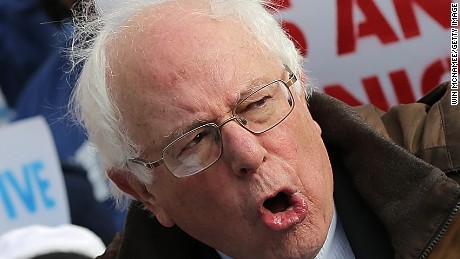Commentary
Bernie’s Campaign Union Strife is What he Proposes for the Whole Country


This article originally appeared in the Washington Examiner on July 29, 2019.
For many conservatives, the labor struggles of socialist Sen. Bernie Sanders are greatly amusing. The senator has never seen a favor to Big Labor that he didn’t support, yet his presidential campaign staff complain to the press about their working conditions. He also neglects to pay them the mythical $15 an hour minimum wage he promotes on Capitol Hill and in his stump speeches.
More incongruous was the senator’s response. He told the press, “It does bother me that people [i.e., union members and officials] are going outside of the process and going to the media. … That is really not acceptable. It is really not what labor negotiations are about, and it’s improper.”
To the contrary, taking the campaign to the media is precisely what modern labor negotiations are about.
The Service Employees International Union, the largest political donor for decades, has spent upwards of an estimated $90 million on a public relations campaign to unionize the restaurant industry while raising the federal minimum wage to $15 per hour — the pay level Sanders’ campaign workers said they weren’t receiving.
That campaign is hardly alone. Decades ago, the SEIU pioneered the “corporate campaign,” a tactic that drags businesses through the media mud to compel them to aid unionization. Such campaigns are labor unions’ industry standard, and Sanders has repeatedly backed legislation that would make those campaigns even more disruptive to the economy.
In 2007, Sanders voted for the misnamed “Employee Free Choice Act.” This unsuccessful legislation would replace secret-ballot union organizing elections with public “card check” campaigns that leave employees open to deception, intimidation, and harassment by union organizers. It would also authorize government officials to unilaterally hand down initial contracts in newly unionized workplaces via so-called “binding arbitration.” The gambit was simple: Empower labor unions by giving them more power and lock employees into labor unions — federal law restricts the times during which unions can be dissolved — with contracts on which employees and employers had not reached agreement.
The failure of the late-2000s card check bill did not end the push for union power: In the previous Congress, Sanders (alongside left-wing Rep. Mark Pocan of Wisconsin) introduced the misnamed “Workplace Democracy Act,” an expanded version of the earlier legislation. In the current Congress, a Democratic leadership-backed proposal that Sanders co-sponsored, the Protecting the Right to Organize Act, would institute almost all the Sanders-Pocan bill’s policies, with only card check somewhat limited. Those bills added more major favors to labor unions, most prominently repealing right-to-work laws, which would force employees to pay union fees or lose their jobs, and authorizing so-called “secondary boycotts.”
Secondary boycotts are a particularly chaotic form of “going outside the process,” to coin a phrase. Since 1947, federal law has prevented unions from striking to coerce Employer A into no longer doing business with Company B, which was the unions’ original target. That year is no coincidence: 1945 and 1946 were America’s worst years for union activities that crippled the economy, with about 10 percent of workers taking part in a nasty strike wave. The Protecting the Right to Organize Act would revive these actions, bringing disputes outside not only the negotiating table but into the broader economy.
You don’t have to be a supporter of Sanders to empathize with his predicament as a unionized employer. With competition from dozens of rivals putting his efforts in jeopardy, the last thing he wants is a nasty internal fight spilling into newspapers and cable news. It’s just a shame he can’t see that other American employers deserve the same consideration.



